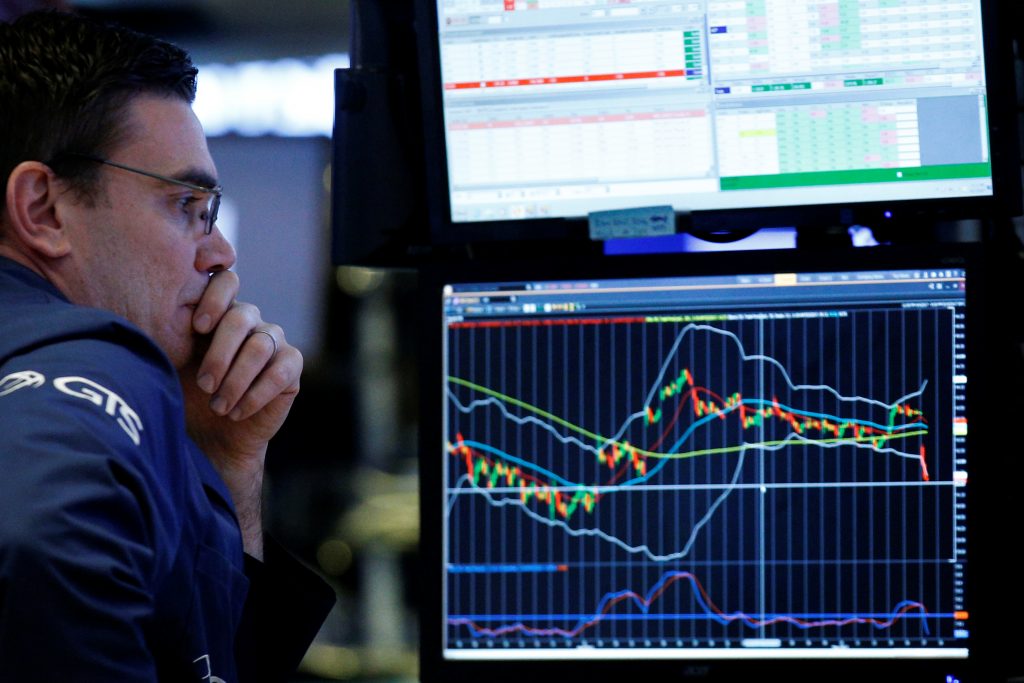Wall Street is finally waking up to the reality in Washington. The S&P 500 Index fell 1.8 percent on Wednesday in the most notable reversal to the so-called Trump rally since last year’s U.S. election. Stockholders nevertheless remain too optimistic about any policy uplift.
The promise of relaxed regulation, corporate tax cuts and investment in America’s crumbling roads and bridges under President Donald Trump and a Republican Congress has excited investors for most of the past six months. Clinging to that cheery outlook required overlooking a plethora of warning signals, not least the daily dysfunction in the nation’s capital and the possibility of detrimental decisions on matters such as trade. There were also the slapdash efforts at reforming U.S. healthcare and regular leaks about probes into potential links between the Trump campaign and Russian meddling into the election.
Investors elsewhere have expressed a good deal of concern about the chances of the president and the Republican-led Congress passing legislation that might buoy both the economy and corporate bottom lines. The U.S. dollar index is right back where it was in early November. The 10-year Treasury yield, meanwhile, after soaring from under 2 percent to 2.6 percent has retreated to 2.2 percent.
The biggest market slump since September means equity investors are getting rattled, too. It took news about Trump asking then-FBI Director James Comey to end an investigation into the administration’s first national security adviser, Michael Flynn, to do so, though, along with the ensuing fallout that has stirred mention of the word impeachment on Capitol Hill.
There are, of course, other factors behind the stock-market surge. For example, nearly all S&P 500 constituents have reported first-quarter results, revealing average profit growth of about 15 percent, according to Thomson Reuters data. Interest rates are low and the employment picture is solid.
Even after Wednesday’s wobble, however, bank shares have jumped by more than a fifth, and the broader market is still up by some 13 percent since Trump won at the polls. That translates into a valuation of some 25 times earnings, a multiple hard to justify without at least factoring in ancillary benefits such as a tax cut. It should mean there is a bigger D.C. discount in store.
All commentary and opinion is that of Breakingviews.
_______________________________________________________________________
Request a free trial of Breakingviews here.


